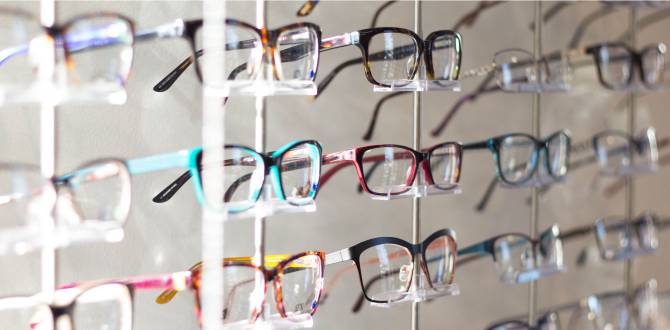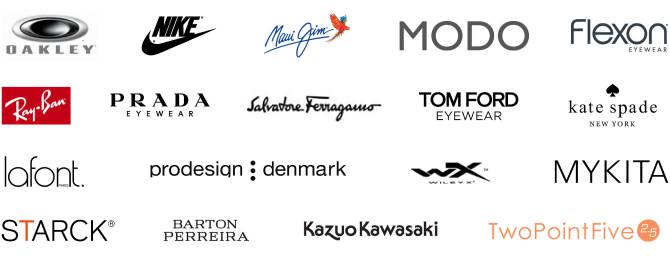
Full Service Optical Boutique
Our optical boutique fills prescriptions for glasses and contact lenses. Our selection of high quality frames is constantly updated and carefully curated to fit a wide variety of style preferences and face shapes/sizes. We offer the latest in prescription lens technology and take the time to discuss all of these options with you. We also provide expert repair and adjustments for eyewear.
Some of the frame brands we carry are:

Some of the optical technology we offer are:
Thinner, lighter lenses: We offer Polycarbonate, Trivex, and High-Index 1.67 and 1.74 These lenses are able to bend light more effectively than standard CR-39 plastic, resulting in eyeglass lenses that are thinner and lighter. This improves both cosmetic appearance and comfort for the wearer, especially those with high prescriptions.
Polycarbonate and Trivex are also more impact-resistant than standard plastic or glass lenses, and are UV-protecting (even if no additional coatings are applied to the lens), making these materials an excellent choice for children’s eyewear.
Progressive lenses: Over time, your eyes gradually lose the ability to focus on near objects, a condition called presbyopia. To address the need for different prescriptions for distant and near objects, many people will choose to wear a progressive lens. As opposed to a bifocal, which has a visible line, progressive lenses (sometimes called no-line bifocals) are multi-focal. They provide many lens powers in a seamless progression for viewing at all distances. With progressive lenses, you can look straight ahead to see things in the distance, drop your gaze down slightly to view the computer, or look through the lower portion of the lens to read things up close.
There are a multitude of different progressive lens designs available. As lens manufacturing and technology advances, the designs of the lens are changed to improve the wearer’s experience. We are proud to offer the newest digital progressive designs from top manufacturers such as Essilor’s Varilux brand, to provide our patients with the smoothest transitions, widest field of view, and most natural vision possible in a progressive lens.
Photochromic (Light-Reactive) Lenses: Photochromic lenses are clear when indoors and automatically darken when exposed to sunlight. They block dangerous UV rays and are a convenient alternative to a separate pair of sunglasses. Newer technology in lenses such as Transitions Signature lenses provide the wearer with faster transitions when moving from indoors to outdoors and vice-versa, and are darker outdoors and clearer indoors compared to older styles of photochromic lenses. We have several styles of the newest photochromic lens samples available in-office for you to test out.
Anti-reflective coatings: Anti-reflective (also called “AR” or “Anti-glare coating”) eliminates reflections on your eyeglasses lenses. As a result, more light passes through the lenses and vision is optimized. AR coating helps to reduce glare, which is especially helpful for driving at night when many people experience glare/halos from streetlights and headlights, and when on the computer or other devices in which the glare from the screen can cause eye fatigue.
Newer AR coatings also offer enhanced resistance against scratches and smudging, making it easier to keep your lenses clean.
Polarized sunglasses: Polarized sunglass lenses are dark lenses that contain a special filter that blocks horizontal glare, which reflects off any flat smooth or shiny surface. By reducing this glare, polarized lenses improve comfort and visibility for the wearer. Polarized lenses are especially popular with those who spend a lot of time around the ocean, because they reduce glare on the surface of the water, but can be a great everyday sunglass option for anyone wishing to have clearer vision in their sunglasses.
Blue-light filtering lenses and coatings: Blue light is part of the visible light spectrum and comes from both the sun and artificial light sources such as CFL and LED lights and computer, tablet, and smartphone screens. This type of light is absorbed deep in the eye and could potentially impact long-term vision. Blue light has also been shown to cause eye strain. Newer technology in lenses and coatings can decrease eye strain by helping to prevent blue light from reaching your retina, the light-sensitive part of your eye.
